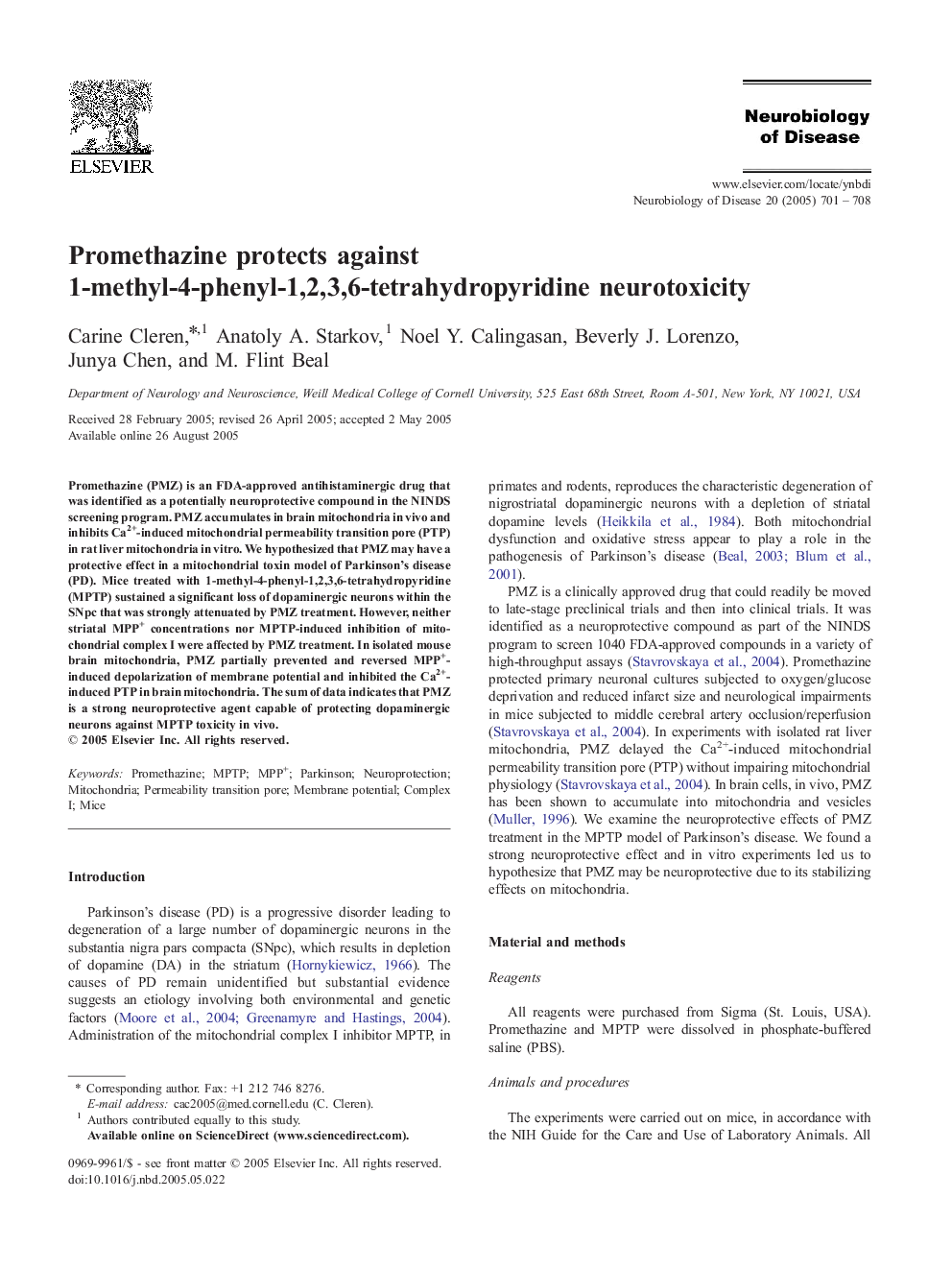| Article ID | Journal | Published Year | Pages | File Type |
|---|---|---|---|---|
| 9989547 | Neurobiology of Disease | 2005 | 8 Pages |
Abstract
Promethazine (PMZ) is an FDA-approved antihistaminergic drug that was identified as a potentially neuroprotective compound in the NINDS screening program. PMZ accumulates in brain mitochondria in vivo and inhibits Ca2+-induced mitochondrial permeability transition pore (PTP) in rat liver mitochondria in vitro. We hypothesized that PMZ may have a protective effect in a mitochondrial toxin model of Parkinson's disease (PD). Mice treated with 1-methyl-4-phenyl-1,2,3,6-tetrahydropyridine (MPTP) sustained a significant loss of dopaminergic neurons within the SNpc that was strongly attenuated by PMZ treatment. However, neither striatal MPP+ concentrations nor MPTP-induced inhibition of mitochondrial complex I were affected by PMZ treatment. In isolated mouse brain mitochondria, PMZ partially prevented and reversed MPP+-induced depolarization of membrane potential and inhibited the Ca2+-induced PTP in brain mitochondria. The sum of data indicates that PMZ is a strong neuroprotective agent capable of protecting dopaminergic neurons against MPTP toxicity in vivo.
Keywords
Related Topics
Life Sciences
Neuroscience
Neurology
Authors
Carine Cleren, Anatoly A. Starkov, Noel Y. Calingasan, Beverly J. Lorenzo, Junya Chen, M. Flint Beal,
